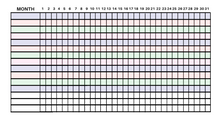Turmeric - is it effective?
- Susan G. Komen
- Jan 23, 2017
- 6 min read

What is Turmeric & how is it used?
Turmeric is a spice that comes from the turmeric plant. It is commonly used in Asian food. You probably know turmeric as the main spice in curry. It has a warm, bitter taste and is frequently used to flavor or color curry powders, mustards, butters, and cheeses. But the root of turmeric is also used widely to make medicine. It contains a yellow-colored chemical called curcumin, which is often used to color foods and cosmetics.
Turmeric is used for arthritis, heartburn (dyspepsia), joint pain, stomach pain, Crohn's disease and ulcerative colitis, bypass surgery, hemorrhage, diarrhea, intestinal gas, stomach bloating, loss of appetite, jaundice, liver problems, Helicobacter pylori (H. pylori) infection, stomach ulcers, IBS, gallbladder disorders, high cholesterol, a skin condition called lichen planus, skin inflammation from radiation treatment, and fatigue.
It is also used for headaches, bronchitis, colds, lung infections, fibromyalgia, leprosy, fever, menstrual problems, itchy skin, recovery after surgery, and cancers. Other uses include depression, Alzheimer's disease, swelling in the middle layer of the eye (anterior uveitis), diabetes, water retention, worms, an autoimmune disease called systemic lupus erythematosus (SLE), tuberculosis, urinary bladder inflammation, and kidney problems.
Some people apply turmeric to the skin for pain, ringworm, sprains and swellings, bruising, leech bites, eye infections, acne, inflammatory skin conditions and skin sores, soreness inside of the mouth, infected wounds, and gum disease.
Turmeric is also used as an enema for people with inflammatory bowel disease.
In food and manufacturing, the essential oil of turmeric is used in perfumes, and its resin is used as a flavor and color component in foods.
*Don't confuse Turmeric with Javanese turmeric root (Curcuma zedoaria).
Turmeric is a wonderful spice with lots of benefits - but is it really effective in ALL of these things?
Is it effective?
Natural Medicines Comprehensive Database rates effectiveness based on scientific evidence according to the following scale: Effective, Likely Effective, Possibly Effective, Possibly Ineffective, Likely Ineffective, Ineffective, and Insufficient Evidence to Rate.
The effectiveness ratings for TURMERIC are as follows:
Possibly Effective for...
High Cholesterol. Research suggests that taking turmeric extract by mouth twice daily for three months reduces total cholesterol, low-density lipoprotein (LDL or "bad") cholesterol, and triglycerides in overweight people with high cholesterol.
Osteoarthritis. Some research shows that taking turmeric extracts, alone or in combination with other herbal ingredients, can reduce pain and improve function in people with osteoarthritis. In some research, turmeric worked about as well as ibuprofen for reducing osteoarthritis pain. However, it does not seem to work as well as diclofenac for improving pain and function in people with osteoarthritis.
Itching (pruritus). Research suggests that taking turmeric by mouth three times daily for 8 weeks reduces itching in people with long-term kidney disease. Also, early research suggests that taking a specific combination product (C3 Complex, Sami Labs LTD) containing curcumin plus black pepper or long pepper daily for 4 weeks reduces itching severity and improves quality of life in people with chronic itching caused by mustard gas.
Possibly Ineffective for...
Stomach Ulcers. Some research suggests that taking turmeric three times daily for 8 weeks does not improve stomach ulcers. Also, taking powdered turmeric four times daily for 6 weeks seems to be less effective than taking a conventional antacid.
Insufficient Evidence to Rate Effectiveness for...
Alzheimer's Disease. Early research shows that taking curcumin, a chemical found in turmeric, daily for six months does not benefit people with Alzheimer's disease.
Eye Inflammation (anterior uveitis). Early research suggests that taking curcumin, a chemical found in turmeric, might improve symptoms of long-term inflammation in the middle layer of the eye.
Colorectal Cancer. Early research suggests that taking a specific turmeric product containing turmeric extract and Javanese turmeric extract might stabilize some measures of colon cancer. There is also early evidence that taking curcumin, a chemical found in turmeric, daily for 30 days can reduce the number of precancerous glands in the colon of people at high risk of cancer.
Bypass Surgery (coronary artery bypass graft surgery). Early research suggests that taking curcuminoids, which are a chemical found in Turmeric, starting 3 days before surgery and continuing for 5 days after surgery can lower the risk of a heart attack following bypass surgery.
Skin wounds related to cancer. Early research suggests that applying a turmeric ointment might help to relieve odor and itching caused by wounds associate with different types of cancer.
Chron's Disease. Some evidence suggests that taking curcumin, a chemical found in turmeric, daily for one month can reduce bowel movements, diarrhea, and stomach pain in people with Chron's disease.
Depression. Early research suggests that taking curcumin, a chemical found in turmeric, twice daily for 6 weeks is as effective as the antidepressant medication fluoxetine in people with depression.
Diabetes. Early research suggests that taking turmeric extract twice daily for 9 months can reduce the number of people with prediabetes who develop diabetes.
Stomach upset (dyspepsia). Some research shows that taking turmeric by mouth four times daily for 7 days might help improve an upset stomach.
Gum Disease (gingivitis). Early research suggests that using a turmeric mouthwash is as effective as a drug-therapy mouthwash for reducing gum disease and bacteria levels in the mouth of people with gingivitis.
Stomach ulcers caused by Helicobater pylori (H pylori) infection. Early research suggests that taking turmeric daily for 4 weeks is less effective than conventional treatment for eliminating certain bacteria (H. pylori) that can cause stomach ulcers.
Irritable bowel syndrome (IBS). Early research suggests that taking turmeric extract (Cynara Turmeric, Lchtwer Pharma) daily for 8 weeks reduces the occurrence of IBS in people with IBS who are otherwise healthy.
Joint Pain. Research shows that taking a specific combination product (Instaflex Joint Support, Direct Digital, Charlotte, NC) containing turmeric and other ingredients three times daily for 8 weeks reduces the severity of joint pain. But it does not appear to help joint stiffness or improve joint function.
Skin Rash (lichen planus). Taking a certain product (Curcumin C3 Complex, Sabinsa Corp) containing chemicals found in turmeric three times daily for 12 days can reduce skin irritation caused by lichen planus.
Prostate Cancer. Research suggests that taking a formula containing broccoli powder, turmeric powder, pomegranate whole fruit powder, and green tea extract three times daily for 6 months prevents an increase in prostate specific anitgen (PSA) levels in men with prostate cancer. PSA levels are measured to monitor how well prostate cancer treatment is working. However, it's not yet known if this formula reduces the risk of prostate cancer progression or recurrence.
Inflammation in the mouth and/or esophagus from radiation treatment. Early research suggests that swishing a turmeric solution in the mouth six times daily for 6 weeks reduces the risk of inflammation in the mouth and/or esophagus caused by radiation treatment in people with head and neck cancer.
Rheumatoid arthritis (RA). Early research suggests that curcumin, a chemical found in turmeric, might reduce some RA symptoms, including morning stiffness, walking time, and joint swelling. Other research shows that taking a turmeric product (BCM-95), Arjuna Natural Extracts, India) twice daily reduces RA symptoms more than conventional medication.
Recover from surgery. Early research suggests that taking curcumin, a chemical found in turmeric, daily for up to one week after surgery can reduce pain, fatigue, and the need for pain medications.
An inflammatory disease called systemic lupus erythematosus (SLE). Early research suggests that taking turmeric by mouth three times daily for 3 months can reduce blood pressure and improve kidney function in people with kidney inflammation (lupus nephritis) caused by systemic lupus erythematosus.
Tuberculosis. Early research suggests that taking a product containing turmeric and Tinospora cordifolia can reduce bacteria levels, improve wound healing, and reduce liver toxicity caused by antituberculosis therapy in people with tuberculosis who are receiving antituberculosis therapy.
A type of inflammatory bowel disease called ulcerative colitis. Some early research suggests that taking curcumin, a chemical found in turmeric, daily for 6 months can reduce symptoms and the recurrence of ulcerative colitis when used in combination with conventional treatments. Other research shows that taking turmeric extract as an enema might help people with this condition.
Acne.
Jaundice.
Hepatitis.
Diarrhea.
Fibromyalgia.
Liver and gallbladder problems.
Headache.
Menstrual problems.
Pain.
Ringworm.
Bruising.
Other conditions.
For more information on Turmeric, how it works, and if there's any safety concerns, please visit http://ww5.komen.org/BreastCancer/Turmeric.html



































Comments